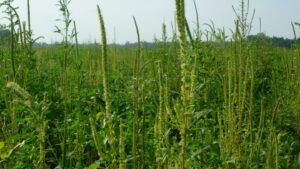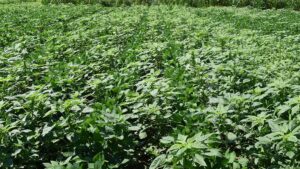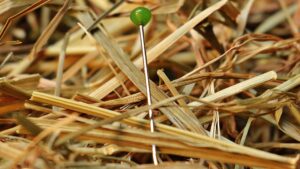When researching glyphosate-resistant waterhemp, scientists at the University of Illinois and the United States Department of Agriculture found evidence pointing to management practices as the driving force behind herbicide resistance, and that herbicide mixing, as opposed to herbicide rotation, is the most effective tool in managing resistance.
Pat Tranel, a University of Illinois weed scientist and a co-author on the study, says this is not the first time researchers have presented evidence that herbicide rotation is not the best resistance management strategy. “This paper is valuable because these conclusions were obtained doing our experiment in a more ‘real-life’ fashion,” Tranel explains. “This study confirmed previous conclusions that farmers should use herbicide mixing rather than rotation.”
During the study, researchers evaluated glyphosate-resistance incidences, as well as landscape, soil, weed and farm-management data from 105 central Illinois grain farms, including almost 500 site-years of herbicide application records. Having this data, collected between 2004 and 2010, helped the researchers identify relationships between past herbicide use and current glyphosate-resistance occurrences.
Aaron Hager, also a University of Illinois weed scientist and co-author on the study, shares that the occurrence of glyphosate-resistant waterhemp was greatest in fields where glyphosate had been used in more than 75 percent of the seasons included in the analysis, where fewer modes of action were used each year, and where herbicide rotation occurred annually. “Simply rotating herbicide MOAs actually increased the frequency of resistance,” Hager says.
On the other hand, Tranel says that the farmers who were using multiple herbicides per application were least likely to have resistance. “When using an average of 2.5 MOAs per application, you are 83 times less likely to have resistance compared to if you used only 1.5 MOAs per application,” he says.
For the complete article, visit http://news.aces.illinois.edu/news/study-uses-farm-data-aid-slowing-evolution-herbicide-resistant-weeds.












